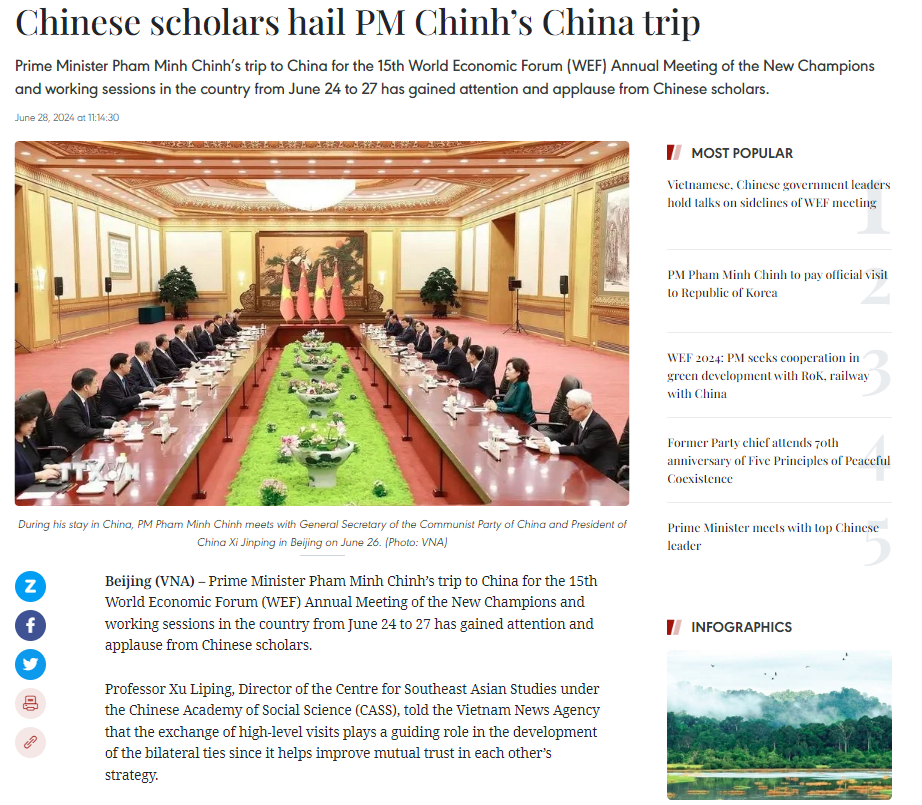LATEST INSIGHTS
Your Present Location: LATEST INSIGHTSLiu Ying: Chinese scholars hail PM Chin's China trip
Source: VietnamPlus Published: 2024-06-28

Prime Minister Pham Minh Chinh’s trip to China for the 15th World Economic Forum (WEF) Annual Meeting of the New Champions and working sessions in the country from June 24 to 27 has gained attention and applause from Chinese scholars.
By VNA
Beijing (VNA) – Prime Minister Pham Minh Chinh’s trip to China for the 15th World Economic Forum (WEF) Annual Meeting of the New Champions and working sessions in the country from June 24 to 27 has gained attention and applause from Chinese scholars.
Professor Xu Liping, Director of the Centre for Southeast Asian Studies under the Chinese Academy of Social Science (CASS), told the Vietnam News Agency that the exchange of high-level visits plays a guiding role in the development of the bilateral ties since it helps improve mutual trust in each other’s strategy.
With the strategic mutual trust, the two countries could bolster their cooperation across the areas of economy, people-to-people exchange, and security, he said, stressing the significance of delegation exchanges via the Party channel.
During the state visit to Vietnam in 2023 by Party General Secretary and President of China Xi Jinping, high-ranking leaders of the two countries reached consensus on building a community with a shared future that carries strategic significance, he elaborated.
Xu held that through such high-level exchanges, the two sides eye to develop the comprehensive strategic cooperative partnership more intensively, for the benefit of the two peoples.
Professor Liu Ying from the Chongyang Institute for Financial Studies under the Renmin University of China said that at their meetings, leaders of the two sides underscored the need to promote economic cooperation, including the building of cross-border economic zones and enhancement of transport infrastructure connectivity.
Construction of the Vietnam – China cross-border economic area will be given the top priority since it will help the two countries bolster investment there while raising their roles and positions in the sustainable development of global supply and industrial chains, the professor noted.
He said Vietnam and China need to boost connectivity between the “Belt and Road” initiative and the “Two Corridors, One Belt” framework, including the construction and linkage of transport infrastructure such as road, railway and seaport that helps facilitate customs clearance and the two-way trade.
Regarding measures to enhance the Comprehensive Strategic Cooperative Partnership, Xu said the two countries should promote head-of-state diplomacy to direct the development of the bilateral relations, foster practical cooperation, effectively settle differences, and enhance exchanges in such domains as youth, education, health care, communications and local cooperation.
For his part, Liu said it is necessary for the two sides to work together in strategic planning while stepping up collaboration in digital economy and green economy, education and culture, and others, thereby improving their high-quality development capacity and building a community with a shared future that carries strategic significance.























































































 京公网安备 11010802037854号
京公网安备 11010802037854号





